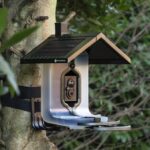This week, Zoox cofounder and CTO Jesse Levinson announced at TechCrunch Disrupt 2024 that it would start rolling out its purpose-built autonomous vehicles in San Francisco and Las Vegas in the coming weeks.
But little was said about the ongoing investigation into the Amazon-owned company’s claims that its vehicles — which are shaped like giant toasters and lack traditional controls like steering wheels and pedals — comply with federal safety rules.
The National Highway Traffic Safety Administration has an open investigation into Zoox’s claim that its vehicles are self-certified, a spokesperson confirmed this week. And NHTSA has not granted the company an exemption from these rules. The spokesperson declined to comment on the investigation itself.
The National Highway Traffic Safety Administration has an open investigation into Zoox’s claim that its vehicles are self-certified
Federal Motor Vehicle Safety Standards (FMVSS) require vehicles to have certain traditional controls, like steering wheels (which include airbags), pedals, and rear and sideview mirrors. The rules are very specific, often detailing the exact position of certain controls down the centimeter. Automakers who build vehicles without these controls are supposed to file petitions with the government for temporary exemptions to these rules so they can deploy their steering wheel-less vehicles.
Zoox, however, contends that it won’t need exemptions because it self-certifies that its vehicles meet current safety standards. “From the beginning, we challenged ourselves to create a vehicle that would be compliant with FMVSS requirements within the current regulatory structure,” the company wrote in a July 2022 blog post. And then later, in November 2023, Zoox said it had achieved this goal.
“Today, Zoox has reached a critical milestone in our journey to launch our robotaxi on public roads: becoming the first company to self-certify a purpose-built, fully autonomous, all-electric passenger vehicle to Federal Motor Vehicle Safety Standards (FMVSS),” the company wrote on November 3rd.
Other companies have sought exemptions, with varying degrees of success. Nuro received the first exemption in 2020 to produce its R2 delivery vehicles, which lack traditional controls and aren’t even large enough for a human operator. Meanwhile, GM sought a similar exemption for its Origin vehicles, submitting a request to NHTSA in 2022. But while Cruise seemed confident it would eventually receive the exemption, the company became bogged down in controversy after a pedestrian was injured by one of its robotaxis in San Francisco. (GM eventually put the Origin vehicle on indefinite hold.)
“The first company to self-certify a purpose-built, fully autonomous, all-electric passenger vehicle”
Zoox’s shuttles are similar to the Origin, designed to travel in either direction, with a cabin featuring passenger seats facing each other. The vehicles are currently permitted by the California DMV to operate in a “limited area” in Foster City, California, where the company is headquartered.
At Disrupt, Levinson said Zoox would start out with employees as passengers in the SoMa neighborhood of San Francisco as well as the Las Vegas Strip. But safety advocates say that the company is skipping a key step in its rush to launch a commercial service.
“Our belief is that a deployment of these vehicles on public roads is a violation of the Safety Act,” said Michael Brooks, executive director of the Center for Auto Safety. “Zoox isn’t so much exploiting a gray area as they are putting a foot over the red line and challenging NHTSA to call their bluff.”
Of course, the burden is on NHTSA to enforce its own rules — and the agency has only recently started to show more backbone in how it approaches autonomous vehicle operators. NHTSA is currently investigating Waymo and Zoox for alleged safety lapses, as well as Ford and Tesla for fatal crashes involving their driver-assist features. If it determines there’s a problem, it could force a recall.
During Disrupt, TechCrunch transportation editor Kirsten Korosec asked Levinson whether he was worried the federal government could derail Zoox’s planned rollout. He maintained that the company’s vehicle is “fully FMVSS compliant” and that Zoox would continue to address NHTSA’s concerns as they emerge. But ultimately he was confident in his company’s approach to the rules.
“We’ve spent an incredible amount of money and time and people complying with the FMVSS regulations as they are,” Levinson said, “and because there aren’t traditional manual controls, in some cases, that requires, you know, interpreting them in a way that is relevant to a robotaxi.”
Read the full article here














